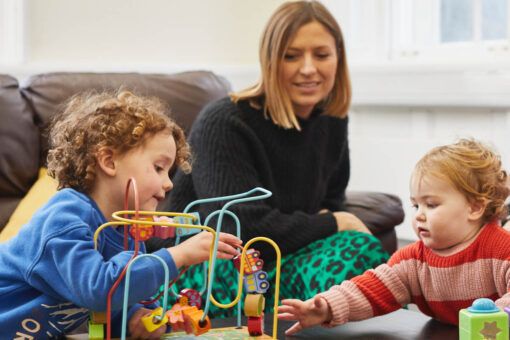Whether you’re a recent graduate or a career changer, we’d love to receive your application for the Frontline programme.

This is the Work
Social workers change lives
At Frontline, we know social workers make a powerful, positive and life-changing impact
But, unlike the work of other frontline services, stories of the difference that social workers make – the children and families they make a real difference for – all too often remain untold. In their place are often myths and misconceptions about what social work really is and negative, often harmful, portrayals of social workers themselves.
Setting the record straight
The myths that persist about social work, damage both the morale of social workers and the trust of the public. This can prevent people considering social work as a career.
We want to give an insight into the positive power of social work to make a real difference for children and families.
These stories need to be told.
It’s time to reconsider social work
We know the persistent myths around social work can prevent people from considering social work as a career. That’s a problem, because social work is work that makes such a huge difference. We need to bring more people into the profession. People who represent the diverse families that social workers work with. People like you.
You might not think social work is for you, but we want to challenge you to reconsider. It’s one of the most impact and rewarding careers you can have.
This is work that makes a difference.
This is social work.
Getting into social work
There are many routes into social work, each suited to different people at different stages of their lives. Ours, the Frontline programme, is a three-year, salaried training programme that offers you a unique opportunity to work directly with children and families, helping them make positive changes in their lives. The people we train work in some of the toughest environments but do some of the most impactful work, helping to secure safe and stable homes for children in England.
Other programmes include Step Up to Social Work, a 14-month programme of study at a university and hands-on social work placements, and Think Ahead, a two-year programme focussed on mental health social work that combines a master’s degree with on-the-job training.
You can also choose to do an undergraduate degree in social work or a master’s degree if you already have an undergraduate degree. And if you don’t feel university is right for you, a social work apprenticeship offers three years of on-the-job training, leading to a social work degree.